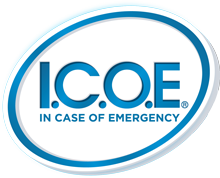
Finding Care for a Loved One With Dementia
When you first begin to recognize that your senior loved one is having difficulty living alone or caring for themselves, it can be a disheartening revelation. You’ll likely be faced with making a decision about how you’ll ensure your loved one is safe and well cared for. While many patients with dementia fare well in assisted living communities, it’s important to understand their specific diagnosis to be sure you’re choosing a place that best meets their individual needs. While you’re doing your research, consider using an aid like an ID bracelet for your loved one. I.C.O.E. Bracelets (In Case Of Emergency) specializes in engraved bracelets for seniors.
Alzheimer’s vs. Dementia
Alzheimer’s disease is one of the most common and well-known types of dementia. Dementia itself is a form of diminishing cognitive function that can be attributed to other factors, such as Parkinson’s disease, Huntington’s disease, or even severe alcoholism. According to the Alzheimer’s Association, the disease progresses in stages. Dementia is characterized by signs including an inability to focus, asking the same question repeatedly, or regularly misplacing or losing items. It can also manifest as a change in personality, anxiety, agitation, poor judgment, and withdrawal from once enjoyable activities. Of course, everyone’s memory begins to decline with age, so it’s important for a physician to make an accurate diagnosis for your loved one prior to making any treatment or care decisions.
Hazards of Dementia
It can be dangerous for someone with dementia to live alone, or even to be left alone for any significant period of time. Dementia patients are prone to going for walks and losing their way and may forget their name or address when approached with help. They may also forget to take prescribed medicines or keep up with personal hygiene. Seniors with dementia are also prone to scams, and may inadvertently give away large sums of money. Perhaps most frightening is the potential for accidental self-harm. Someone with dementia may try to cook something on the stove and forget about it, leading to a fire; they may start a bath and let it overflow, creating a slip-and-fall hazard; or they may try to drive their car and cause an accident because they forget how to operate the vehicle.
Talking to Your Loved One
People with dementia sometimes have periods of lucidity, during which they are fully cognizant of themselves and their surroundings. This might be an ideal time to talk to them about the benefits of assisted living. As a caution, it might also cause your loved one to resist the change and point to their current state as demonstrating they are “just fine” to continue living on their own. This dynamic makes the discussion even more challenging than talking to a loved one about age-related long-term care. Depending on the severity of their condition and the level of decline, you may need to speak to your loved one’s doctor about prognosis and act accordingly in terms of seeking out advanced levels of care. Senior Path advises that while it’s never an easy discussion or decision, it is a necessary one.
Your Home or Assisted Living?

Many adult children want to bring their elderly loved ones to live with them, rather than consign them to assisted living. However, this can be extremely difficult with dementia patients, as they require a constant level of care and supervision. Assisted living facilities that specialize in memory care are designed and operated with the needs of dementia patients in mind. They typically have a higher degree of security to protect against wandering.
Recognizing that a loved one is experiencing signs of dementia or impaired cognitive function can be an emotional time, particularly when that person is no longer able to recognize you or other family members. Social workers at memory care facilities understand this situation and can provide advice on how to continue meaningful interactions with your loved ones.
Customizable bracelets with contact information can be a lifesaver for your loved one and can give you peace of mind. Learn more by visiting http://icoebracelets.comproduct/medical-emergency-contact-bracelets/
Author: Lydia Chan of alzheimerscaregiver.net
Photo by Pixabay

